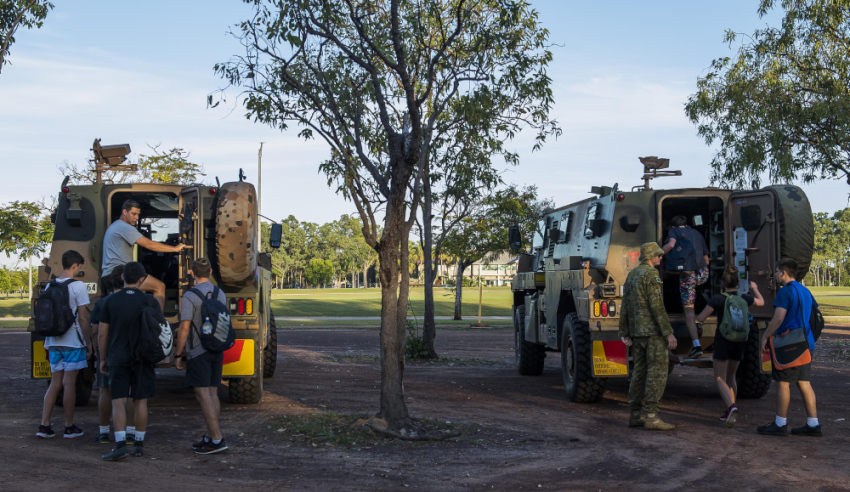Much has been said about the decline of Australia’s automotive industry, with politicisation and blame dominating much of the conversation. But despite the doom and gloom the decline presents for the industry and its workers, the defence industry is offering a beacon of hope.
Defence Connect spoke with Tim Piper, Ai Group's director in Victoria since 2002, who is hopeful of the prospects the defence industry can offer displaced automotive manufacturing workers.
"I think there's a huge opportunity [for work] in the defence area for many of the skilled workers that are in Ford, who are now closed of course, and Holden and Toyota," Piper said.
"Indeed, many of the suppliers to those companies are going to be having difficulties in finding work and I think there are many companies that are going to be able to use the skills of these people.
"They have been well skilled in what they were doing, they understand how to work well and very importantly the supply logistics have been a major part of what the car industry has done very efficiently over the years, and indeed the defence industry does as well, and so the synergy to that is likely to be there."
Piper said the two states hit hardest by the closure of car manufacturing sites, South Australia and Victoria, coincidentally have arguably the biggest stakes in Australia’s defence industry.
"Certainly there will be lots [of jobs lost] in Victoria and South Australia and these are where some of the jobs are going to be lost," he said.
"The defence industry in both of those states is quite strong and indeed is getting stronger as we know because of the money that is being provided by the federal government.
"So whilst some [new jobs] could be interstate, I think many are likely to be in Victoria and South Australia."
Piper stressed that, although there are promising signs for workers and suppliers to transition from the automotive to defence industry, it is not a simple task, but one that will depend on the engagement and reasoning of the companies.
"It's about companies, the defence companies and the workers, thinking laterally and being able to show the skills that they are inheriting can be properly utilised and it's often a matter of how the people think, it's not just the skills, they've been trained to think well and utilise the training skills they already have," he said.
"You're likely to be able to take people on board with creative skill opportunities within the OEMs [original equipment manufacturers] that they've been with or indeed the supplier they've been with, and whilst it might not be directly translatable, the fact is they have skills that can still be utilised and they've got a mode, a training style that can be picked up by the defence companies.”
The process of this transition will take time, however, with Piper anticipating a long wait period for those displaced and looking for work.
"We're going to see a major transition over the next nine or 10 months and then once the OEMs close down it's going to be significant because we're going to be seeing a lot of people that will be hurting for a while," Piper said.
"Hopefully many of them might be able to get new jobs but the transition process for some is going to be lengthy and for others it's going to be quite quick, depending on how quickly their skills can be taken up by other businesses."
The challenge of transitioning workers and suppliers into the defence industry cannot just be undertaken by the companies involved in the industry, but also the state governments, which Piper said Victoria is doing well.
"I must say that the minister for this is Wade Noonan [Victoria's Minister for Industry and Employment] and he has taken a very hands-on approach to it and he’s making some positive steps," he said.
"The state government is running a significant number of different workshops, transition opportunities [and] skilling opportunities providing people with opportunities to re-skill, giving them a lot of career advice and that's on top of what the OEMs are doing for their workers.
"It’s a huge task, and a huge effort has been put into this and it will make a difference, it still doesn't mean that people aren't going to hurt because they will, but the government is certainly trying to help."



